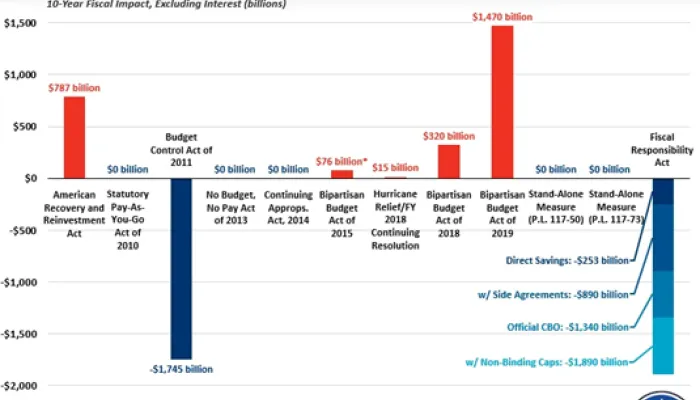Op-Ed: Congress' Bad Record of Passing Appropriations Bills Shows Need for Budget Process Reform
The Hill | Dec. 10, 2009
In the next few days, the House and Senate will engage in their usual end-of-year dance and vote on two massive omnibus appropriations bills to keep the government funded. The bills will help avoid another series of stopgap Continuing Resolutions that have kept the lights on in much of the federal government since October 1—the start of the new fiscal year. Lawmakers, anxious to leave for the year and smelling the proverbial jet fumes, will consider the omnibus bills “must-pass” since they include seven of the “regular” appropriations bills needed to fund everything from veterans’ benefits to railroad safety.
Once again, the much-vaunted “regular order” has been thrown out the window. But in January, members will return to the Capitol and promise that things will be different. The appropriations bills will be finished on time. But will they? The last time Congress was able to complete all of the appropriations bills individually by the start of the new fiscal year was 1994. Republicans love to blame the Democrats for the mess and Democrats take every opportunity to blame the Republicans. But neither party has managed to find a way to make the trains run on time.
Now, this may all seem like inside baseball, but the impact is serious. Managers of federal programs, already well into developing their next year’s budgets, still do not have their final Fiscal 2010 funding levels. Then there’s the question of whether lawmakers seriously discuss federal priorities when spending programs are lumped into a huge piece of legislation. If Congress cannot not even pass the annual appropriations bills on time, how can we expect it to deal with the unsustainable fiscal path that awaits us over the next decade?
Is there a better way to do things? Can a process be developed that will work even with sharp partisan divides on Capitol Hill? The Peter G. Peterson Foundation, The Pew Charitable Trust and the Committee for a Responsible Federal Budget believe that there is a better way and have established The Peterson-Pew Commission on Budget Reform This commission will make recommendations for how best to improve the nation’s fiscal future.
What's Next
-
Image

-

-
Image
